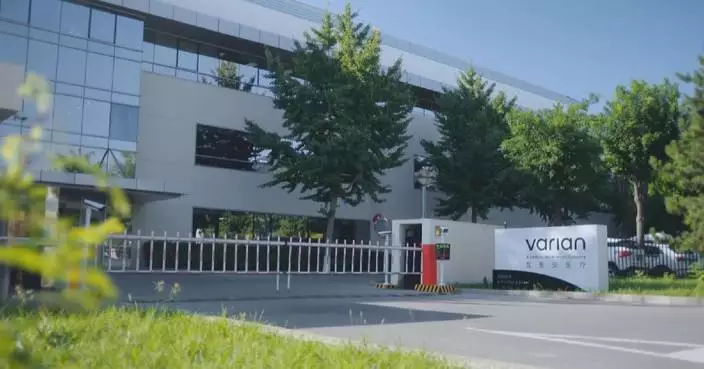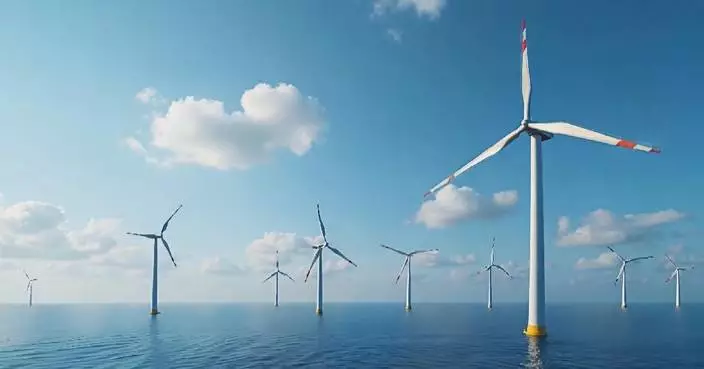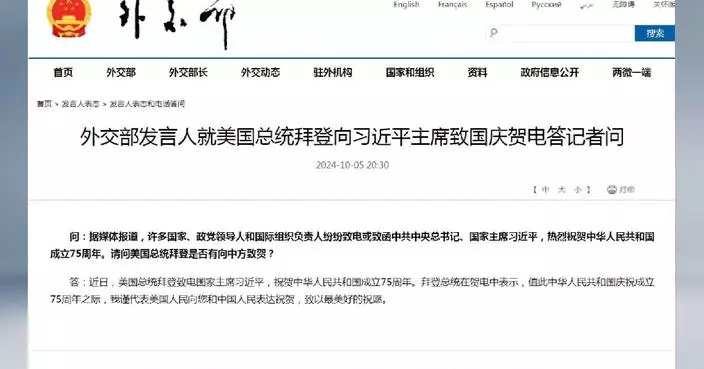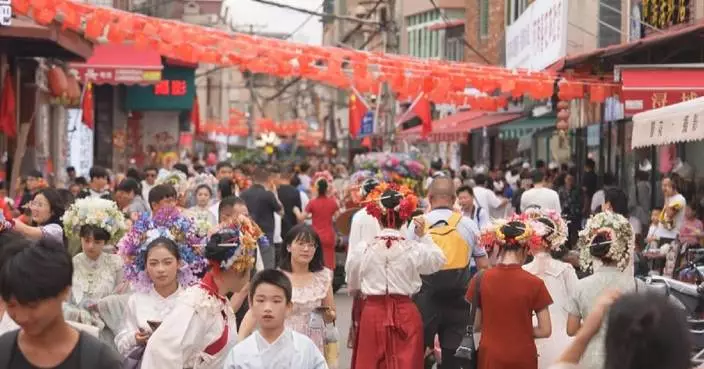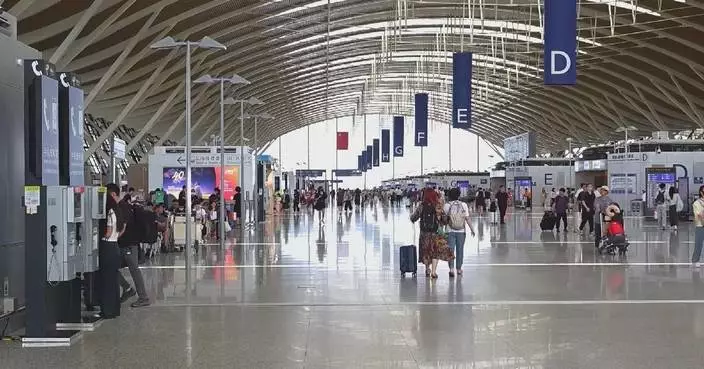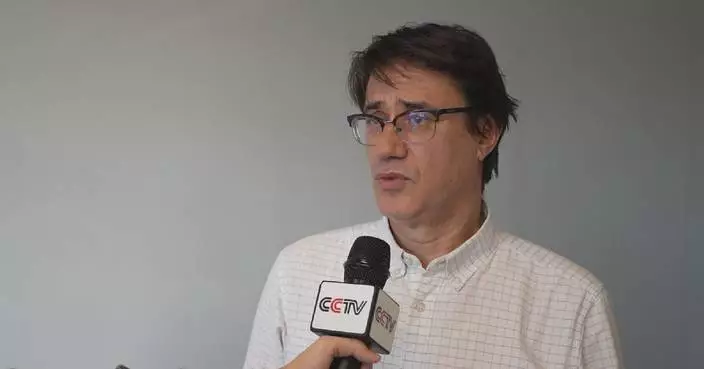Young Chinese woman cyclists have been going all out for the emerging Olympic event of the BMX freestyle and are determined to chase the global title at Paris 2024.
China swept the podium in the cycling BMX freestyle women's park final of the Olympic Qualifier Series (OQS) in Shanghai on May 18. Chinese cyclists Sun Sibei, Sun Jiaqi and Deng Yawen finished first, second and third respectively in the women's park final in front of a packed venue at the Huangpu Riverside.
As one of the four emerging events among breaking, skateboarding, and sport climbing, the BMX freestyle is an extreme sport with great viewing value, where athletes will use steep slopes in the venue to perform various difficult moves.
Freestyle BMX originated in the 1970s, and China first put together a BMX freestyle team in 2018. However, the youngsters have won numerous awards within six years.
Sun Jiaqi was China's first BMX World Cup champion, and Deng is regarded as the most comprehensive rider on the team. And Sun Sibei, who won't be seen in Paris, was the runner-up at the World Championships last year.
"I can do the maneuvers while flying in the air. This event is so interesting, so elegant, and so comfortable, just like taking a roller coaster," said Sun Sibei.
"When you suddenly succeed after many attempts, your teammates are all around you, cheering for you. Maybe at that moment, you will feel that you want to choose this sport because you enjoy the feeling of success," said Deng.
Finally, at the OQS Series held in Budapest at the end of June, Sun Jiaqi and Deng won the third and fourth place with their stable performance, and secured the position for the Paris Olympics.
At present, the Chinese women's team ranks first in the world, and five of them are among the top 15 in the individual world ranking.
The freestyle BMX competition of the Paris Olympics will be held in the temporary venue in the Place de la Concorde. Athletes need to complete their technical moves as best as possible within 60 seconds, and he judges will score the athletes' performance based on the difficulty of the moves, the height of the jump, creativity and originality.
"I have a good sense of rhythm throughout the game. I can handle the game and not be pushed around by it or panic about it. I am quite satisfied with the whole game. The movements were almost completed. I can be the best version of myself and I will work hard to move in that direction," said Sun Jiaqi.
"I want to go and stand on that stage, and I know I have the ability to stand on the Olympic podium," said Deng.

Chinese talents gear up for Paris Olympics BMX freestyle champion
Yamaha, one of the world's largest piano manufacturers, has established a significant presence in Hangzhou City of east China's Zhejiang Province for more than two decades, witnessing remarkable growth of the market in the country while envisioning long-term development on this dynamic land.
The Japanese company's factory in Hangzhou produces approximately one in every five pianos in China. At its peak, nearly 70 percent of Yamaha's pianos and one-third of its woodwind instruments and guitars are manufactured in this facility. The products not only cater to the Chinese market but are also exported worldwide, earning the brand a prestigious reputation.
The friendly relations between Zhejiang and Shizuoka Prefecture, the center of musical instrument production in Japan, began in 1982, fostering deeper exchanges and cooperation. As trade between the two sides flourished, Yamaha Corporation focused its attention on Zhejiang, seeking to capitalize on its potential.
"Yamaha has high expectations for the Chinese market. The increasingly open Chinese market provides our company with stable support from material procurement to product sales,” said Seiichi Suzuki, general manager of Xiaoshan Yamaha Musical Instruments Co., Ltd.
Yamaha established its factory in Hangzhou's Xiaoshan District in 1997. Initially, the factory relied on assistance from its Japanese headquarters for worker training and production equipment. However, over the years, advancements in China's industrial technology have transformed this dependency. Chinese suppliers have now developed the capability to design and manufacture processing equipment for complex piano parts, even exporting some of the equipment to Japan.
The factory has grown from a modest workforce of fewer than 100 to nearly 3,000 employees. Its production processes have evolved from simple assembly to full-fledged instrument manufacturing, with an increasing focus on localizing component production, thereby enhancing the entire supply chain.
"There is a big difference between 2007 and now," said Taku Okamoto, head of the production department.
Okamoto was sent from Yamaha's Japan headquarters in Shizuoka Prefecture to China seven years ago to oversee product quality. He witnessed rapid development of the country, saying that nowadays tasks that might take a long time in Japan can often be completed in about a third of that time in China.
Today, Yamaha, like many foreign-funded enterprises, is capitalizing on the opportunities presented by China's robust growth. Suzuki, as well as many workers like Okamoto, say they believe that building on the foundation of the past two decades, Yamaha can seek an even more robust development in this land for the next 30, 50, or even 100 years.
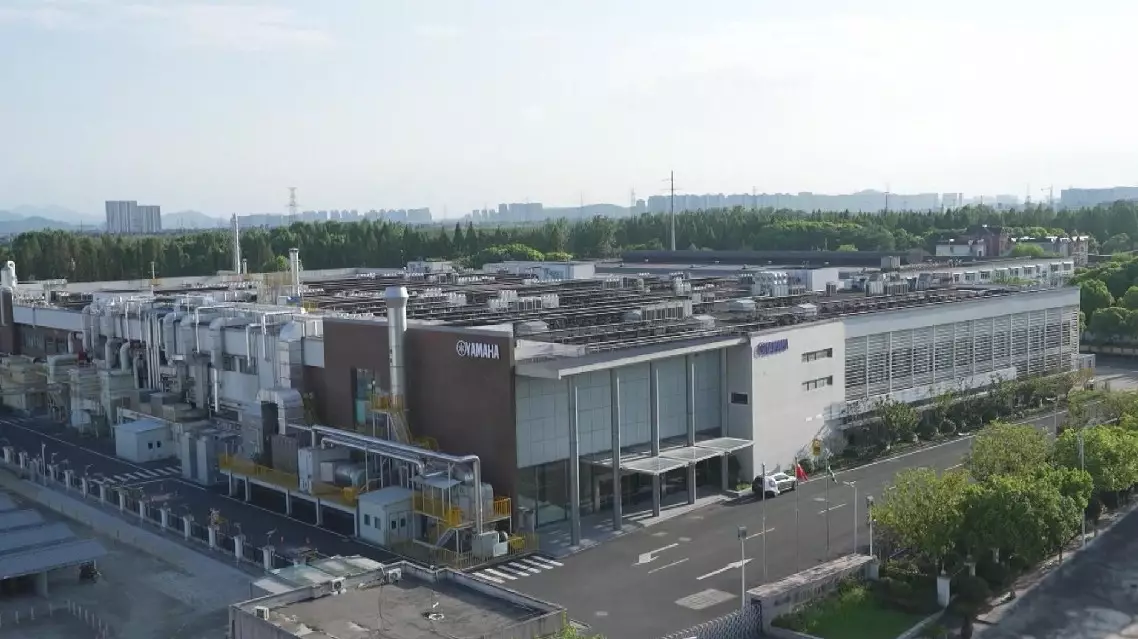
Yamaha's journey in Hangzhou inspires vision for more robust development in China




